当前位置:首页>>details
2009
As the distinguished guest speaker Mr. Xianglong Dai, Chairman of National Council for Social Security Fund, delivered an important speech. He pointed out that Chinese investors should establish a global perspective, and be concerned with reform of the international financial system, as well as the division of international economic roles. He hoped that Chinese investors should have a clear understanding of the current international economic globalization and seize the opportunity to make a good investment, and they also should be based on the domestic market, support the adjustment of financial institutions and promote the innovation of VC/PE industry in China. Furthermore, Mr. Dai made it clear that the National Social Security Fund Council will support the VC / PE's development permanently.
Mr. Dai told the audience that the total assets of the National Social Security Fund were expected to reach RMB 750 billion by the end of this year, and increase to RMB 1 trillion in the upcoming years, and that they would consider increasing the direct investment scale in private equity. By June 30th, 2009, the total assets of the National Social Security Fund had already amounted to RMB 660 billion with an investment return rate of 9.99%. This totaled an investment return of RMB 51.2 billion from January and June. In the coming years, PE/VC investment in the fund was expected to be RMB 100 billion.
As for the most concerned state-owned share transfer, Mr. Dai revealed that state-owned shares which worth RMB 36 billion had been transferred to the National Social Security Fund; however, it was still in discussion that whether state-owned venture capital shares would be allowed to transfer to National Social Security Fund’s shares.
Finally, Mr. Dai spoke highly of the contribution of CVCA members to China’s VC/PE industry and stated that they had set good role models for the industry.
The establishment of Shanghai's international financial center is under full construction, and the policy making is also at the forefront. And the recently launched preferential policy for the foreign private equity investment institutions gets full attention as well. Mr. Xinghai Fang, Director General of Financial Service Office, Shanghai Municipal Government, delivered a warm speech. His analysis of the active policies promoting VC/PE industry in Shanghai; specific recommendations and advocacy of the implementation of an innovative financial system and report on the need for a better platform for this industry was very inspiring and appealing.
Mr. Xinghai FANG attached great importance to this summit and he expressed that VC/PE plays an important role in the construction of the Shanghai International Financial Center. In addition, stated that non-public funded financial institutions were also very helpful to the establishment of an innovative state financial system.
He also reported on five related VC/PE measures from Shanghai government. First, that Shanghai has been standardizing the policy environment since last August; that by the end of June, there were 11 newly registered, foreign-owned, equity investment funds, with registered capital of 4.855 billion Yuan; and that there were also 24 registered equity investment companies, with registered capital of 250 million Yuan; that the Shanghai government had implemented a series of preferential policies for foreign VC/PE companies, which received very good feedback from the VC/PE industry; that by this August, 10 VC/PE management agencies had been registered in Shanghai, with a total amount of 32.46 million US dollars. Finally that the Shanghai government was actively coordinating to clear industry development bottlenecks, including securities accounts and filing at the National Development and Reform Commission and etc.
In terms of future financial measures, Mr. FANG expressed that the Shanghai government will further perfect the policy environment and the administration of VC/PE, set up a good market platform of deal sourcing and exit, and will encourage districts and counties to set up government-guided funds.
Mr. Yichen Zhang made the opening speech on behalf of China Venture Capital Association at the conference. He thanked the guests for attending the event and gave them a warm welcome. This was a valuable opportunity for professionals in the industry to get together, communicate and look to the future, Zhang said. He also extended thanks to the organizers, sponsors and supporters, and especially to Dai Xianglong, Chairman of National Council for Social Security Fund, who would deliver a speech at the conference.
Wang Dehong, Vice Director of Lujiazui Functional District Administrative Committee of Pudong, Shanghai, the co-organizer of the event, said that CVCA is an influential association distinctively different from government institutions in general meaning. The influence of CVCA is the key reason that attracts Pudong local government and Lujiazui Functional District Administration Committee to work with it. The conference successfully invited leaders in China's financial sector and experienced leading entrepreneurs. It will exert great influence on Pudong and on the construction of Lujiazui National Financial Center. He introduced the achievements of Pudong government in the financial sector, and stated that the local government would promote the construction of an international financial center in Shanghai through clustering of organizations, concentration of trade and talents, and concentration of financial activities.
Then, Mr. Youjun Zhang, President of China Securities Co., Ltd, the title sponsor of this conference, made a speech. It was significant that CVCA held this China Private Equity/Venture Capital Summit Forum as the GEM board opened in China in October 2009 and the first batch of 28 companies went public. He pointed out that the equity investment industry during the last decade has made noticeable achievements on the back of rapid economic growth and the good policy environment in China. He also briefly introduced the achievements and experiences of China Securities Co., Ltd, in the hope that ideas could be exchanged with professionals and experts in the industry to jointly boost the development of venture investment and private equity industry. He also shared his viewpoints on the industry’s development in China with the guests and raised the question of how to keep a balance between risk and profit, a practical issue that is worth pondering upon by every equity investor.
This panel focused on RMB funds, a topic of high concern with overseas investors, and interpreted hot topics such as the regulatory landscape, feasible model, and the best cooperation model for GP and LP. Mr. Edward Tian, Chairman of China Broadband Capital, hosted this forum. He said the panel would discuss RMB funds from three angels: firstly, to talk about views on RMB funds from the personal perspective, legal perspective and media perspective; secondly, to talk about additional areas where the government and administration agencies are expected to allow foreign PE to invest in RMB funds; thirdly, to talk about how to set up RMB funds with unique Chinese features.
Hugo Shong, Founding General Partner of IDG Capital Partners, said RMB funds have two big advantages: the management funds are able to participate in RMB business; RMB in China's domestic stock market has considerably higher private equity ratio than the same funds in the US and thus a higher return on investment. This is the same case at the Chinext opened in China. He also mentioned financing concerns over RMB funds, particularly with the timing of financing. He revealed that they are discussing with government authorities about whether foreign LPs can be allowed to enter the RMB funds market, and then they can get both capital and management experience, and even their industrial experience, from foreign LPs. The greatest challenge is how to let more funds, industrial funds, large enterprises, and wealthy individuals become qualified LP. Hugo believed that the CVCA platform is helpful in promoting communication in the industry.
Jeffrey Zeng, General Partner of Kaixin Investment looked at this issue from the perspective of a fund manager. According to him, the ideal situation is to finance, invest, and exit in China, but at present this status is far from being reached. He called for joint efforts in the industry to build up and improve the ecosystem. He also said many LPs do not have in-depth understanding of the private equity funds industry because China’s LP history is quite short. Thus, the LP investors are expected to improve overall capabilities.
1. Richard Guo, Partner from Fangda Law Firm and John Fadely, Partner from Clifford Chance analysed this topic from a juristic viewpoint and their experiences from the legal perspective. According to Richard, to set up RMB funds in China today requires joint efforts from the government and the industry. Currently, LP is immature in China, and the supervisory environment is imperfect. LPs such as Social Security Funds are expected to grow in amount to realize optimized integration of capitals and expertise. John stressed parallel investment that combines overseas investment funds and domestic RMB funds. He believed it is also a challenge for foreign investment funds to have investors satisfied with their work. The problems are how to handle filing, registration and settlement of exchange of RMB funds, how GP in China should invest capital in domestic funds, and how to clarify the above issues for foreign investors to develop better understanding. Without transparent procedures, RMB funds in China cannot grow. He also mentioned that in principle we all hope there is an investment fund in China that can integrate overseas and domestic capital like venture capitals, but so far, it is more practical in the next couple of years to adopt the model that is parallel with overseas and domestic.
George Chen from Reuters Asia shared his thoughts with the audience from the perspective of an observer. He agreed that it is the best to finance, invest, and exit in the domestic market.
This panel focused on the current situation of the industry and talked about how to build a benign local LP ecosystem. Roman Shao, Managing Partner of DT Capital Partners and moderator of this panel, compared the importance of LP to the source of the industrial chain. In talking about the economic recession’s impact on LP, he said in the past year LP was hot in China because overseas financing was difficult and the VC/PE industry chain had matured in China. He summarized the “three representatives” of the change of government funds. The first generation is the Shenzhen Model, i.e., establishing their own investment institutions and becoming GP; The second generation is the Shanghai model, which is similar with today’s directing funds, but the practice is somewhat different as the GP is smaller. Though it is not directly managed, the control over GP remains strong. The third generation is financed by capital from the government which is not directly invested in projects, but is handed over to an experienced and highly qualified GP management team to manage it. From the perspective of GP, he identified some problems with LP in practical work. For instance, LP is constrained by legal and environment limits and thus could not fully play its role. He suggested that every LP guest at the conference should offer a suggestion on the domestic LP ecosystem. He hoped the CVCA platform could influence the policy makers.
Representatives from Pangaea-Russell Private Equity and Siguler Guff & Company, two LPs with international background, made speeches. First Vincent Huang, Partner of Pangaea-Russell Private Equity, manifested his opinion that from the perspective of a foreign LP, there are many problems as they cannot participate in RMB funds. The discrepancies are mainly with time, energy and source of projects. He called for professionals in the industry to work together to strive for the foreign-invested LPs for the opportunities to participate in RMB funds. While the percentage is not important, what matters most is minimizing any conflict of interests. He suggested that overseas LP’s could enter the Chinese market via innovation of financial products. Ching Tan, Managing Director of Siguler Guff & Company, began his speech with the BRIC fund of Siguler Guff & Company. According to him, China’s percentage in global investment has not declined significantly despite the financial crisis, and this is due to the rapid recovery and growth in China, and the smooth exit channel took in shape. Regarding the promotion of the relationship of domestic RMB funds LP and GP and its mechanism construction, he agreed with Vincent Huang in that foreign-invested LPs have made noticeable contributions to the development of GP in China. He also said that they would like to participate in RMB funds to contribute to the prosperity of the RMB funds.
Xianghong Lin, Chairman of Suzhou Ventures Group, a representative figure in the LP industry in China, shared his opinion on LPs with the audience from the perspective of a local LP. He first introduced the characteristics of the guided fund under SVG: 1) In terms of the source of capital, the source of SVG’s guided fund is jointly set up by the free capital of SVG and the free capital of Development Bank. 2) A pure LP without involvement from GP. 3) This fund has no geographical constraints. So, from the nature of the fund, it is absolutely a market-driven industry. In terms of GP selections, Lin said they have built a set of GP assessment system through their communication with GPs- to select the GP management team from the angle of the market. He also called on peers in the industry to keep calm in face of problems. To solve problems, not just discuss them.
Xiang Luo from UN Industrial Development approached the topic from the perspective of cooperation between local government guided industrial funds and GPs and made two points. First, what kind of GP do local governments prefer to work with? Luo summarized three characteristics: 1) GPs expect enlargement of investment with the cooperation with the government; 2) Local governments expect the project invested by directed industrial fund is in line with the key industry; 3) Local governments expect capital as well as integration of resources. Secondly, how to work with local government guided industrial funds? Luo also summarized it into three models: 1) joint investment and establishment of co-fund management company; 2) entrusted management; 3) pledges on both sides, which is an internationally accepted practice.
Duane Kuang, Managing Director of Qiming Venture Partners, made a speech from the perspective of GP and shared the experiences of Qiming Venture Partners in investment strategy, investment direction and team-building. He said the industry shall continuously call for a better environment for US-dollar LP in China against the background of development of RMB funds, so that GP can get financed by both US-dollar funds and RMB funds and enjoy favorable policies in China. He hoped the government could offer clearer guidance and more support.
Andrew Yan, Managing Partner of SAIF Partners, hosted this panel. In his opening remarks Andrew talked about the domestic exit environment using practical cases, a topic that has long been of focus by the industry.
Youxin Chen from China Capital Management Company made a speech. He believed the direct investment business was in a good place for development: 1) economic growth in China has brought about plenty of opportunities for enterprise; 2) The domestic capital market has matured and construction of the exit mechanism is attracting attention from the capital market.
Frank Tang, President of FountainVest Partners, discussed the topic from the perspective of a foreign fund. He addressed three issues: 1) Whether the high price of China PE will impact the initial investment price from foreign PE in the early edge of private equity; 2) Timing and procedure of IPOs in China, as there are considerable uncertainties from transaction to approval and issuance in China; 3) Protection of investors' rights, i.e., what assurances can investors get when they make the investment, and whether their rights can continue before the IPO.
Then Sherry Yin from Morrison & Foerster and Jonathan Zhou from Fangda Partners illustrated their opinions from angles of domestic and foreign lawyers. Yin's speech focused on opportunities brought about by China's A share market and its existing problems. She thought that although the GEM board provides a new exit channel for joint ventures on the A share market, exit from the GEM board is not the priority for foreign PE/VC in the very near future. She said though supervision of China securities market has intensified, the cost of law-breaking remains low and the market has its own special problem. She said that although the Chinese government has encouraged foreign PE/VC to enter the domestic market, large-scale private equity funds are still very cautious and still prefer overseas IPOs if possible. In addition, there are still uncertainties in the Chinese market about whether investment with participation of foreign capital can invest in telecom enterprises and whether IPO on Chinext is allowed.
Jonathan Zhou approached the topic from the angle of the system. He said that though exit from the A share market has many difficulties and uncertainties, it still needs to be discussed. First, the design of the system and how the government intends to introduce good enterprises to domestic investors, so the existing framework developed by supervisory institutions has eliminated almost all the exit channels for red-chip companies in overseas IPOs and the overseas capital market. As a result, the traditional small red-chip architecture is about to exit. For all funds hoping to invest in Chinese enterprises in China, how to exit the A share market is a practical issue. Secondly, from the angle of A share market, the prospect of exit is not that gloomy. He also shared some actual examples of exit through back-door listing on A share market through a fund with investment from foreign capital.
Charles Wang, CEO of Zhong De Securities, elaborated his thoughts by talking about the problems Zhong De Securities had encountered since its establishment. He hoped brokers could also play an active role in this area. He suggested that supervisors should, in addition to supervision, boost development of the market by understanding the needs of enterprises.
This panel focused on how VC/PE could find the right sector to enter into in the dynamic and complicated investment environment in China.
Tina Ju, Managing Partner of KPCB China hosted this panel. She firstly invited guests at the panel to briefly introduce the investment strategy of their funds, and especially to talk about their focus on each industry. Then, they discussed on the investment opportunities in the consumer goods and service sector, the TMT sector and the clean technology sector. Finally, the guests talked about the preferred investment strategy for individual investors.
Jing Huang from Bain Capital, in talking about the reasons why investors with experience in consumer goods find it difficult to make investments, commented that firstly the company is too small; secondly it lacks regulation, and thirdly it is too expensive, as the enterpreneurs sometimes have unrealistic expectations. He mentioned that in some of the expensive and fast-developing consumer goods or retail enterprises, the price of first-round of fundraising is ridiculously high. As a result, the management is more likely to make mistakes in operation and management in the future. According to Mr. Huang, as the industry is excessively hot nowadays, patience is more necessary. He said Bain Capital mainly invests in mature industries. When the growth rate of an enterprise declines or when other problems emerge, Bain Capital will help the enterprise to overcome the difficulties to sustain growth. In terms of media investment, Bain Capital is more interested in traditional media companies. In the clean energy sector, he advised that cycle, policy guidance and excessive production capacity should be considered.
Elton Jiang from Northern Light Venture Capital said the key strategy of his company is to target the technology-driven and consumption-driven industries, specifically TMT, consumer goods and services, new energy, energy-saving and green material, and healthcare. In talking about media investment, he stated that from the perspective of income patterns, some innovative new media may have better prospects, and the investment opportunities with TMT may last for a long time. He also mentioned that the development of the new energy industry has to be boosted by policies. To investors, technology and timing are most critical.
David Liu from KKR made a speech from the angle of investment. KKR has confidence in the industry leaders in China's domestic consumption market, mainly because many industry leaders facing domestic demands have great potential for long-term development, high return on investment, and high threshold. Besides this, many consumers are highly loyal to consumer brands. However, in China, the main factor is the choice of a capable management team, and the key to investment is to be "people-oriented". He also compared the investments between China PEs and US Pes by sharing examples.
Teresa Teague from Goldman Sachs had different viewpoints. According to her, Goldman Sachs’ investment in China focuses on financial business, TMT and consumer goods retail added-value services in China. Regarding investment in the consumer goods market, Teresa believes problems are with cash flow and a lack of concentration. PE investors would be more interested in consumer companies with long-term strategic visions, she said.
Fumin Zhuo from GGV Capital said his company focused on consumer goods, clean energy, traditional TMT and manufacturing and parts. He stated GGV made very few investments in the consumer goods industry though this industry is a hot spot currently. His reasoning was that this sector is low in threshold but hard to improve, and easy to copy but hard to innovate. However, there are still opportunities of investment in this sector considering the scope (market size of the consumer product) and the depth (whether the product and service can penetrate into the bottom-tier consumption). He said GGV had spent considerable effort in exploring clean energy sector. China as a responsible great power has to make large investments in this sector and this sector has high requirements on technology. He also talked about healthcare products. He personally is interested in three areas: bio-medicine, medical devices, and Chinese medicine.
In this panel, guests expressed opinions concerning how VC/PE can help SMEs to get rid of difficulties, develop rapidly, and achieve win-win partnerships by sharing cases and experiences. Kathy Xu from Capital Today Group hosted this panel. The first question she raised was how VC/PE could help enterprises to add value. The second question was on the percentage of equity share, or how much equity share is expected by VC/PE. Finally she talked about how to handle the relationship with enterprise during exit.
Hao Chen from Legend Capital said that his organization has been focusing on early stage projects in the past eight years. According to him, early stage projects share a common characteristic, which is that enterprises are newly set up and need relatively more help. Legend Capital spares no efforts to help these enterprises after the investment. He cited real cases to illustrate how Legend Capital helps enterprises in three ways: 1) building good management and administration structure; 2) help the team to grow; 3) discussing development goals and strategy with the company when it is in a crucial period. In terms of equity share, he said VC/PE should have a large share to ensure that investors play their role and get return. Usually in early每stage projects, investment accounts for 20%-30%. In later-stage projects, investment would be less. The equity distribution is related to impact and control on enterprise as well as with the returns on investment.
Zhou Liu from Shenzhen Fortune Venture Capital Co. Ltd, said his company focused on middle and late stage projects. Firstly, they helped enterprises to find professional services, such as law firms and accounting firms. Secondly, they stressed financial standardization, financial staffing and board of directors. Thirdly, they gave assistance to companies based on the background of the enterprise. In terms of equity share, he said his company prefers 10%-20%. He also mentioned that local VC and foreign VC have different investment approaches. Basically, 99% of investments made by his company are to private enterprises, in which his company has to take the largest share to gain enough motive.
Chang Sun from Warburg Pincus Asia LLC said VC/PE can help enterprises to some extent, but this depends on whether the enterprise needs help, what kind of help it really needs and that whether the entrepreneur wants help. In terms of how to provide assistance, he agreed with Zhou Liu from Shenzhen Fortune Venture Capital in that they mainly provide help in capital market and finance. On the principle of replacing a CEO, he said they prefer not to change CEO if possible, but when needed, they must do it decisively.
Yichen Zhang from CITIC Capital manifested the differences between his company and companies of other guest speakers. He said that they make every effort to unify the benefits of the management and those of the investors. Besides this, as CITIC Capital focuses on control-type investment, most of the time, they want a higher equity share. He also said both government resources and their own resources are leveraged to guide the overall operations of the enterprise.
2013
 | ||||
 |  | 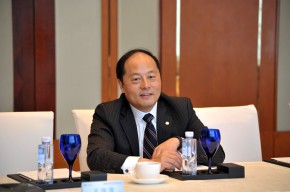 | ||
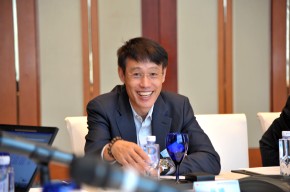 | 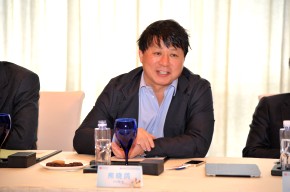 | 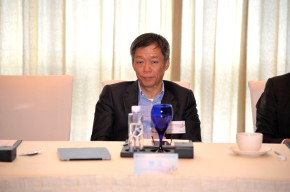 | ||
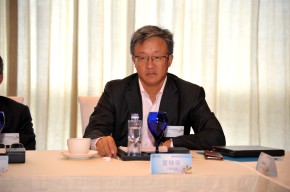 | 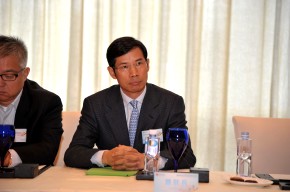 | 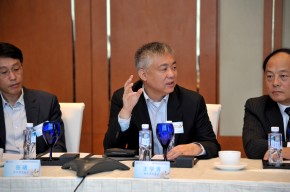 | ||
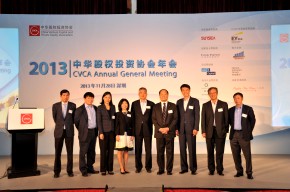 | 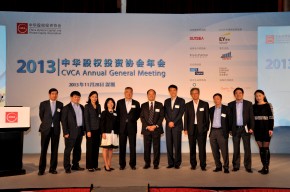 | |||
 | ||||
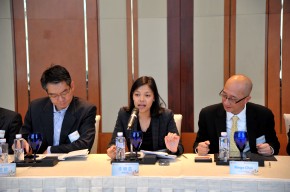 |  | 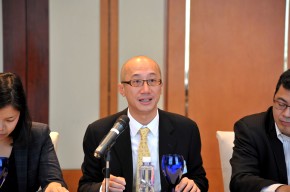 | ||
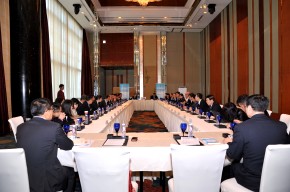 | 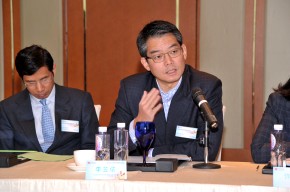 |  | ||
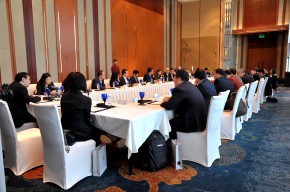 | 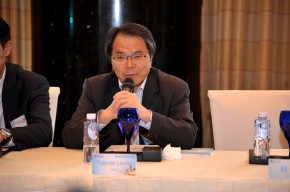 | 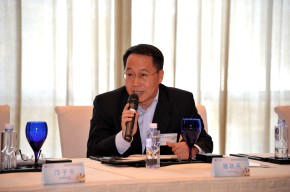 | ||
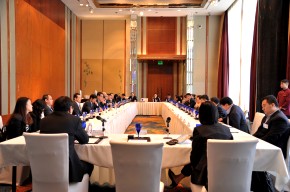 | 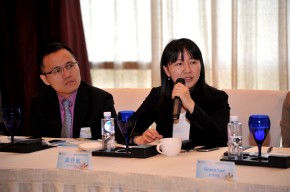 | 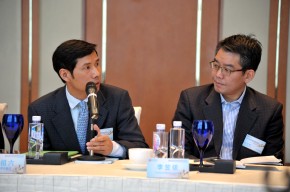 | ||
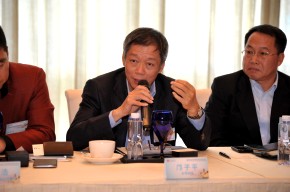 | 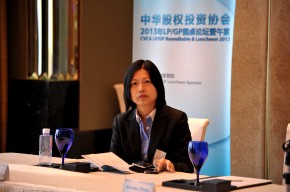 |  | ||
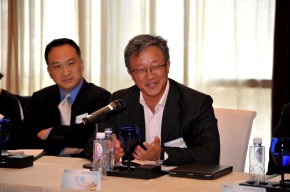 | 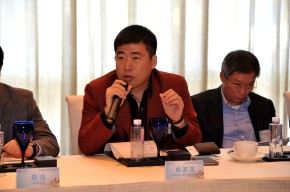 |  | ||
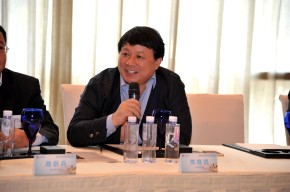 | 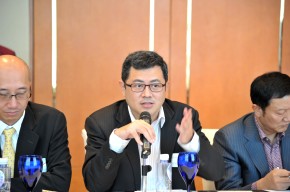 | 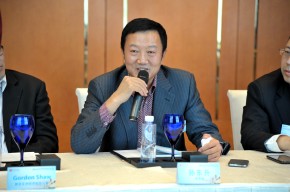 | ||
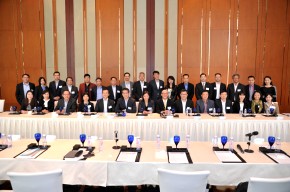 | ||||
 | ||||
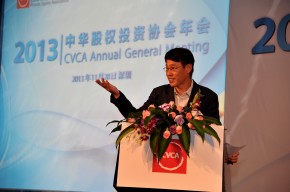 | 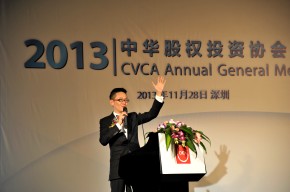 | 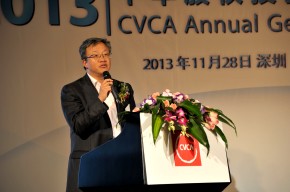 | ||
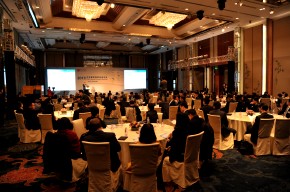 | 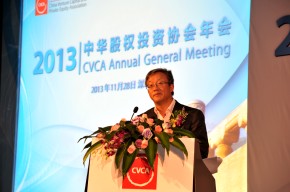 | 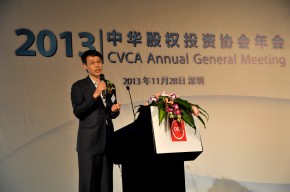 | ||
 | 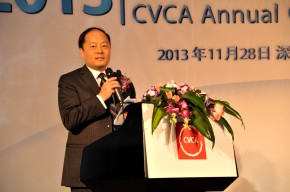 | 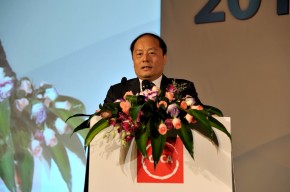 | ||
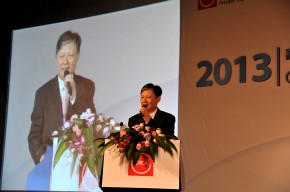 | 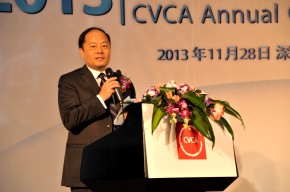 | 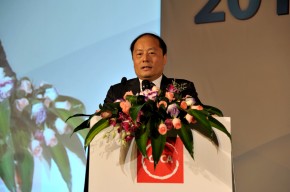 | ||
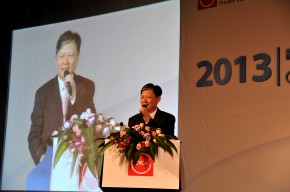 | 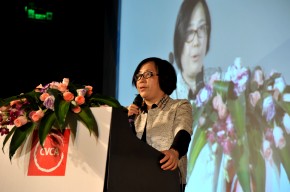 |  | ||
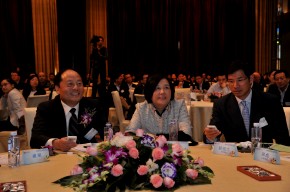 | 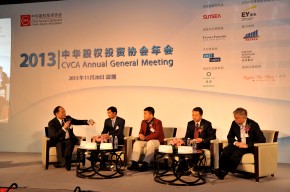 | 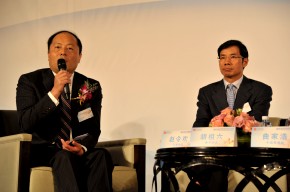 | ||
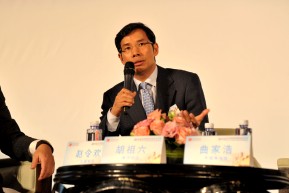 | 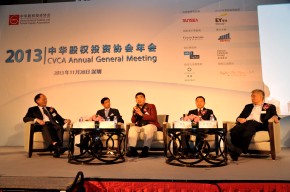 | 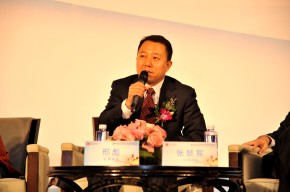 | ||
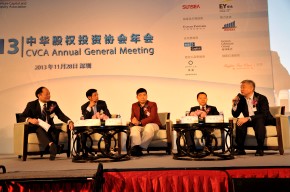 | 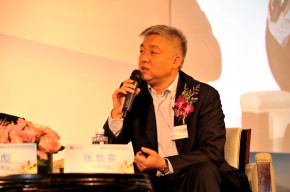 | 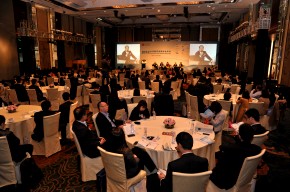 | ||
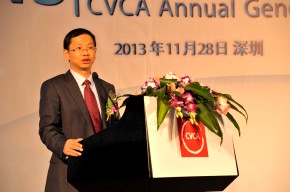 | 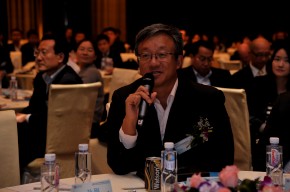 | 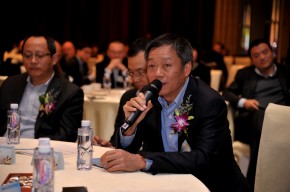 | ||
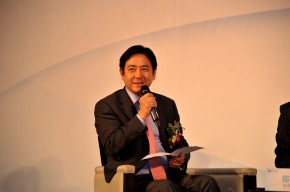 | 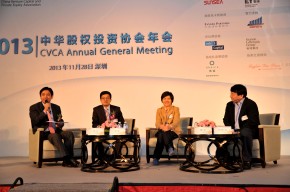 |  | ||
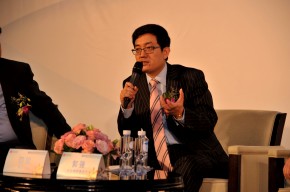 |  | 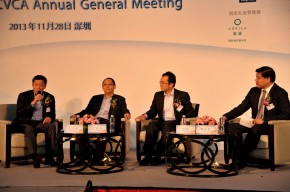 | ||
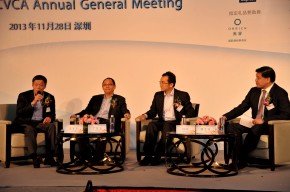 | 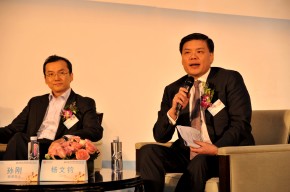 | 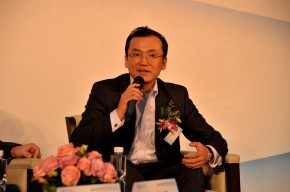 | ||
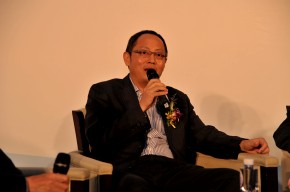 | ||||
 | ||||
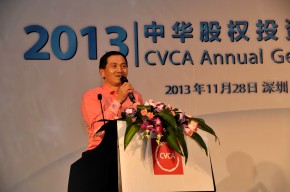 |  | 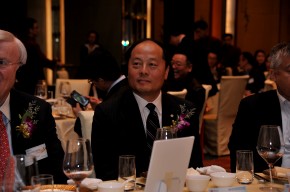 | ||
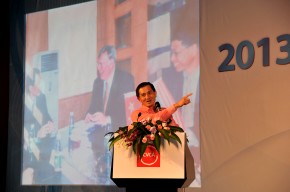 | 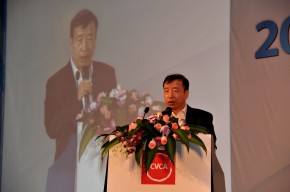 | 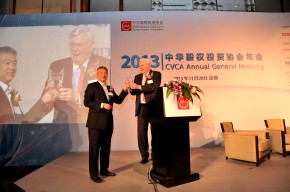 | ||
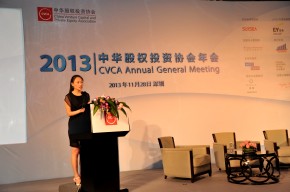 | 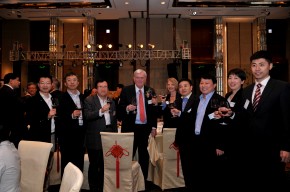 | 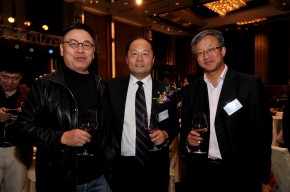 | ||
 | 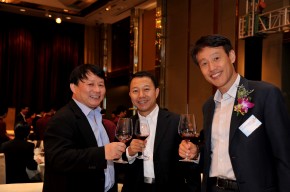 | 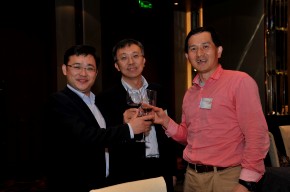 | ||
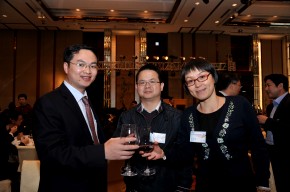 | 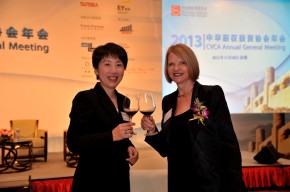 | 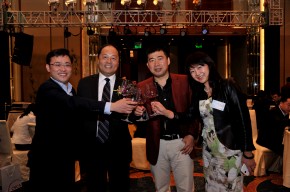 | ||
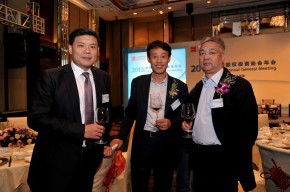 | 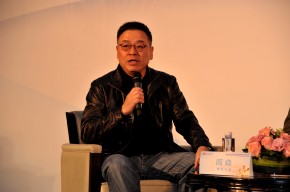 | 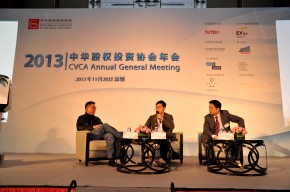 | ||
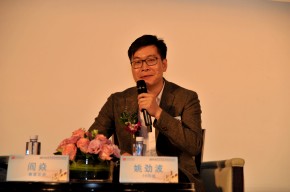 | 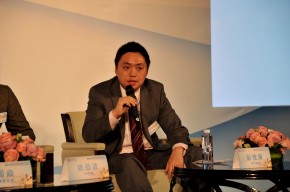 | 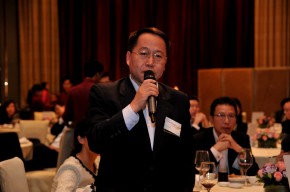 | ||
 | 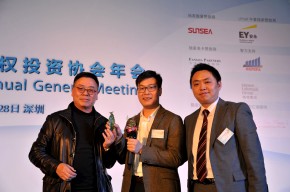 |  | ||
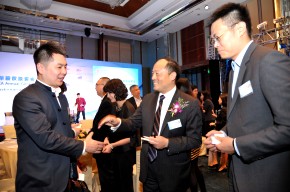 |  | 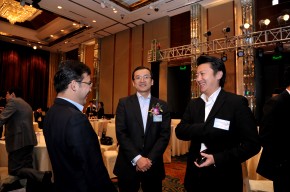 | ||
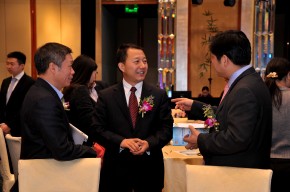 | 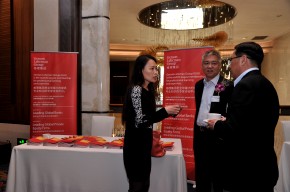 | 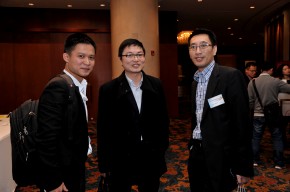 | ||
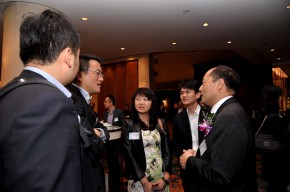 |  | 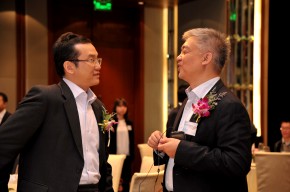 | ||